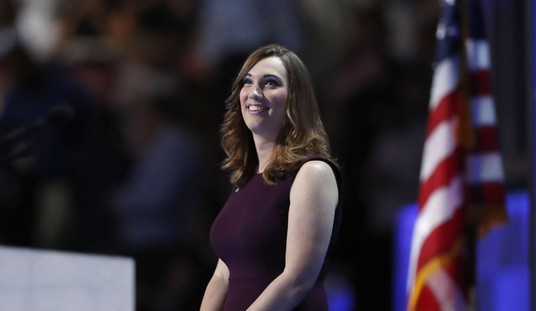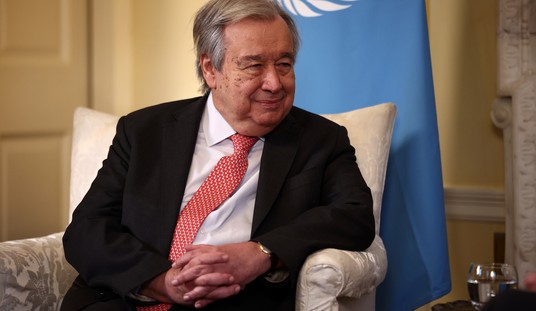(This article was originally published on October 22, 2012.)
——————————–
Suspicious that your neighbor might be up to a little genocide?
On August 4, 2011, the White House issued a press release touting the creation of a “standing interagency Atrocities Prevention Board”. Later, the administration announced that the Board was to be headed by Samantha Power — the Obama foreign policy advisor who was removed from Obama’s 2008 campaign for referring to Hillary Clinton as a “monster”, and who once advocated that the U.S. consider invading Israel.
Six months following a PR rollout planned around Holocaust Remembrance Day and culminating with a speech by Obama at the Holocaust Museum, little evidence exists of any Board activity beyond a connection to a bizarre FBI website referring people who have information “concerning a specific incident of genocide or a war crime” to the FBI tip site.
From the 2011 release:
President Obama is committed to strengthening the United States Government’s ability to prevent mass atrocities and serious human rights violations. In 2010, he created the first-ever White House position dedicated to preventing and responding to mass atrocities and war crimes. And in Kyrgyzstan, Cote d’Ivoire, Libya[!], Sudan, and elsewhere, this Administration has prioritized the protection of civilians and the prevention of mass atrocity and serious human rights violations, and employed a wide range of economic, diplomatic, and other tools in service of those ends.
Today, President Obama is directing a comprehensive review to strengthen the United States’ ability to prevent mass atrocities. The President’s directive creates an important new tool in this effort, establishing a standing interagency Atrocities Prevention Board with the authority to develop prevention strategies and to ensure that concerns are elevated for senior decision-making so that we are better able to work with our allies and partners to be responsive to early warning signs and prevent potential atrocities.
The confounding sentence does little to detail what responsibilities the Board would actually be entrusted with, or how it would carry out its mission. One year later, it is not apparent that the Board itself had any clarity regarding what actions it should take in pursuit of the “President’s directive”.
Following the press release, Obama officially announced the creation of the Atrocities Prevention Board nine months later, on April 23, 2012, at the U.S. Holocaust Museum, four days after Holocaust Remembrance Day:
We’re making sure that the United States government has the structures, the mechanisms to better prevent and respond to mass atrocities. So I created the first-ever White House position dedicated to this task. It’s why I created a new Atrocities Prevention Board, to bring together senior officials from across our government to focus on this critical mission. This is not an afterthought. This is not a sideline in our foreign policy. The board will convene for the first time today, at the White House.
The public response generally included skepticism and mockery, from the leftist Stephen Walt (co-author of the roundly condemned, anti-Semitic Israel Lobby) to conservative and mainstream outlets. Charles Krauthammer was particularly biting:
I kid you not. A board. Russia flies planeloads of weapons to Damascus. Iran supplies money, trainers, agents, more weapons. And what does America do? Support a feckless UN peace mission that does nothing to stop the killing. (Indeed, some of the civilians who met with the peacekeepers were summarily executed.) And establish an Atrocities Prevention Board.
With multiagency participation, mind you. The liberal faith in the power of bureaucracy and flowcharts, of committees and reports, is legend. But this is parody.
The Atrocities Prevention Board did meet that day, April 23. Samantha Power moderated a panel discussion. Valerie Jarrett spoke. Maria Otero (her title: “Under Secretary for Civilian Security, Democracy, and Human Rights”) remarked:
The president directed the first-ever comprehensive study of the U.S. government’s atrocity-prevention capabilities.
She added, pragmatically:
The launch of the Atrocities Prevention Board is an important step but it is just the beginning of the hard work. Just because we have organized ourselves better to prevent and respond to atrocities does not mean that atrocities will not continue to happen.
Indeed.
Otero introduced the other panelists, each of whom held a uniquely bureaucratic, inscrutable title: Assistant Secretary of State for Conflict and Stabilization Operations Rick Barton; Ambassador-at-Large for Global Criminal Justice Stephen Rapp; and Assistant Secretary, Bureau of International Organization Affairs Esther Brimmer.
Following the April 23 rollout, remarkably few mentions of the Atrocity Prevention Board or its activities have appeared — not in the media, on federal websites, or via PR release.
A U.S. Army release mentioned that, on June 12 and 13, the U.S. Institute of Peace held:
… a military and civilian table-top exercise (TTX) that focused on Mass Atrocity Response Operations (MAPRO) … two days prior to the first meeting of the Atrocity Prevention Board (APB).
…
Participants worked together to develop response strategies for III Corps to execute on the simulated battlefield of Atropia during the recent Warfighter exercise.
Hmmm. More:
MCTP plans to host future TTX’s with other relevant topics such as human trafficking, food security and gender-based violence.
Excellent. PJ Media has been unable to find any mention of the Board actually meeting two days after this exercise, as stated above.
On July 23 and 24, the Holocaust Museum, the Council on Foreign Relations’ Center for Preventive Action, and CNN(!) held a conference titled: “Imagining the Unimaginable: Ending Genocide in the 21st Century.” Hillary Clinton spoke, acknowledging the skepticism with which the Atrocities Prevention Board had been greeted:
We’re putting our elements of this strategy — prevention and partnership — into action through the Atrocities Prevention Board that President Obama announced here. Now, it might not be obvious that creating yet another government board will address a problem as entrenched as this. But the fact is a body such as this can drive the kinds of institutional changes that we envision.
The following day, Chairman of the National Intelligence Council Chris Kojm spoke, mentioning the Atrocities Prevention Board:
We can identify factors — we often refer to them as drivers — that over time can lead to increased risk. We believe that monitoring atrocities drivers will enable Secretary Clinton and the Atrocities Prevention Board to more closely monitor risks and develop initiatives to address root causes earlier — and break a cycle that could lead to the unimaginable.
On August 24, the FBI released the following announcement:
Genocide and War Crimes: New Website Designed to Raise Awareness, Solicit Information
Kosovo … Rwanda … Srebrenica. These places will forever be associated with unspeakable, brutal acts of genocide and war crimes.
The global community has banded together to help prevent crimes like these and to bring to justice the perpetrators who commit them. The U.S. is part of this international effort — most recently through the creation of an interagency Atrocities Prevention Board. And the FBI supports the government’s efforts through its own Genocide War Crimes Program.
Today, in an effort to raise awareness about these crimes and the FBI’s part in helping to combat them, we’re announcing the launch of our Genocide War Crimes Program website. In addition to educating the public on our role, the website solicits information from victims and others about acts of genocide, war crimes, or related mass atrocities that can be submitted to us through tips.fbi.gov or by contacting an FBI field office or legal attaché office.
Essentially: if you see genocide, say something. This is the only engagement with the public that the Atrocities Prevention Board has been involved with: either directly, or obliquely as described in the FBI release.
However, it should be noted that in September, Ambassador Elizabeth M. Cousens, the — ahem — U.S. Representative on the UN Economic and Social Council and Alternate Representative to the UN General Assembly, promised the following to the — ahem — UN General Assembly Interactive Dialogue on the Responsibility to Protect:
Last August, in establishing the new U.S. Atrocities Prevention Board, President Obama affirmed that “preventing mass atrocities and genocide is a core national security interest and a core moral responsibility of the United States.” Through this initiative, the United States seeks to increase our own capacity to prevent and respond to mass atrocities through better coordination at home and stronger partnership abroad. A core goal of this initiative is to strengthen the capacity of the UN itself. For example, we will update U.S. training programs for UN peacekeepers to focus on enhanced techniques for civilian protection, including prevention of sexual and gender- based violence, and we will work to help strengthen the UN’s capacity for conflict prevention and crisis management, including through preventive diplomacy and mediation.
So: you can expect the Atrocities Prevention Board — if it is in fact active and existing beyond a presidential proclamation — to be recommending ever-increasing aid to the UN.









Join the conversation as a VIP Member